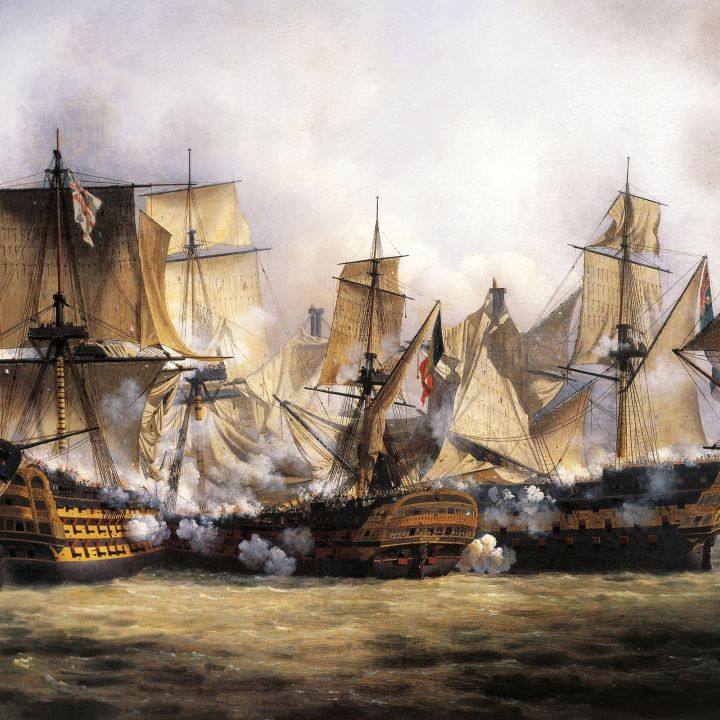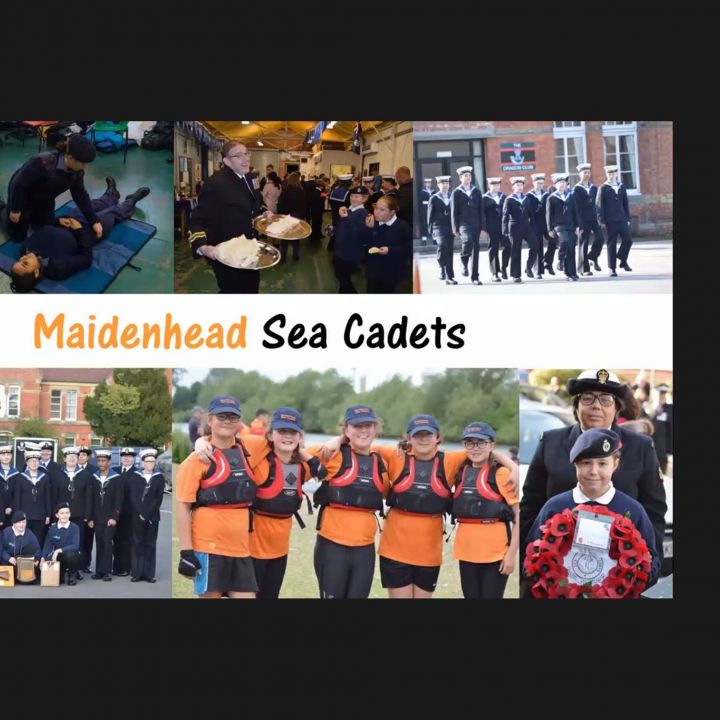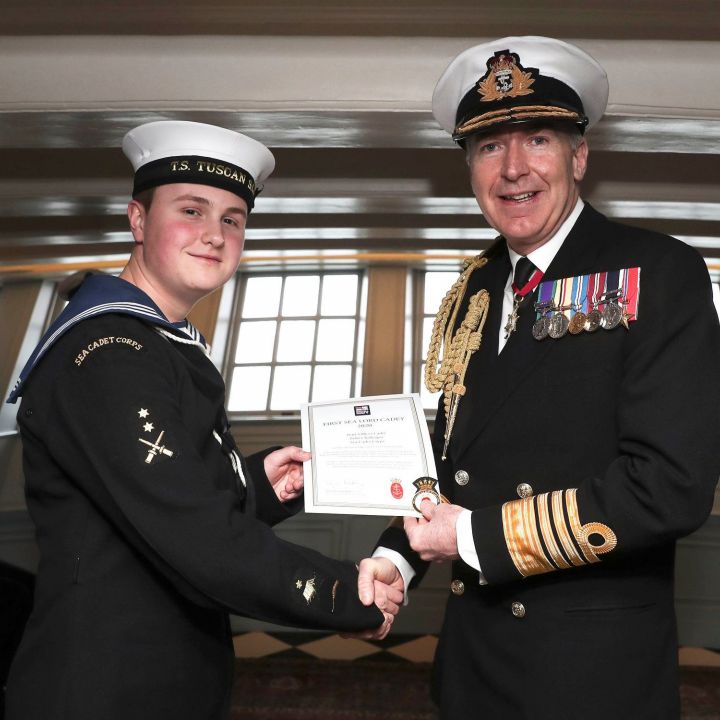A battle which defined the Age of Sail and which sealed British dominion of the seas for a hundred years, the brave sailors of the Royal Navy under the command of Vice-Admiral Horatio Nelson fought the combined French and Spanish fleet.
Nelson’s inspirational leadership, grasp of strategy, and unconventional tactical genius in splitting the line of enemy ships had already set the pre-conditions for victory and, despite being outnumbered in ships, men and guns, the 27 British Ships of the line annihilated the enemy.
Of the enemy fleets 33, 19 were lost and the rest surrendered. Not a single British ship was lost.
Interestingly, moments before the battle Nelson instructed his Signal Lieutenant, John Pasco, to hoist the message 'England confides that every man will do his duty', but Pasco suggested changing the word 'confides' to 'expects' as the former was not in his signal book, needing to be spelt out letter by letter.
Under the order of ‘That will do, Pasco, make it directly’, the famous signal was then given to the fleet and the British went on to defeat the enemy.
Whilst only an hour into battle, Vice-Admiral Nelson was hit by a French sharpshooters’ musket ball as he paced HMS Victory’s quarterdeck directing the Battle, ultimately leading to his death.
The significance of the victory and his death during the battle, led to the signal sent moments before, "England expects that every man will do his duty", being regularly quoted, paraphrased and referenced up to the modern day.
Nelson's victory and death at Trafalgar secured his position as one of Britain's most heroic figures.




